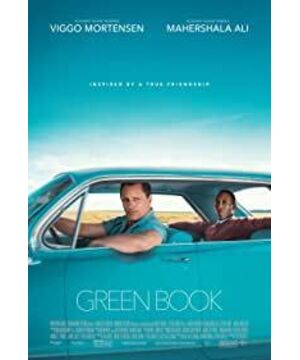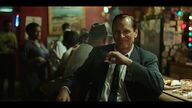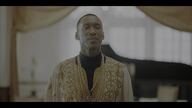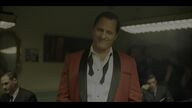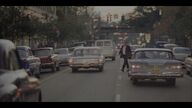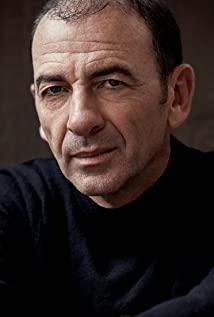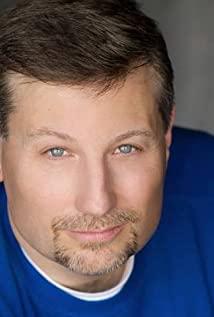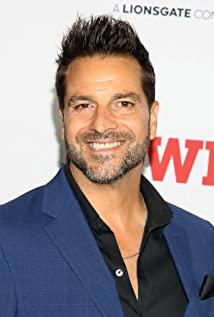Tony, Italian-American, fought in World War II, lives with his dad and brothers, has a beautiful wife, two children, and a happy family. The receding hairline and protruding belly don't stop Tony from exuding his charm, he still has a great accent, even though he's turned into an uncle.
Tony works in a nightclub, is sophisticated and slick, gets along well with guests, is a ruthless guy, and looks like the Corleone family when he fights. Tony was temporarily out of work due to nightclub renovations, he desperately needed a day job to support his family, and even pawned his watch during difficult days.
Dr. Shirley, an African American, grew up learning the piano with his mother and then performed in various parishes and concert halls in Florida. Luckily, Dr.Shirley was appreciated by nobles after a performance and was arranged to study classical music in Leningrad. He was the first black student at the college. He then earned three doctorates in psychology and music, and his music is obsessive. He is a true virtuoso.
Of course that's just his bright side.
Dr. Shirley, has a brother but they don't usually connect; he had a wife but eventually parted ways, saying he can't balance "being a good partner" and "being a good pianist"; he is an alcoholic and often Sitting in a chair in a daze, drinking a bottle of whiskey alone one night.
The story takes place in 1962, when the talented pianist insists on a tour of the racist South, and after a lot of interviews, Tony finally gets the job.
In 1962, not everyone treated black people equally, even Tony, who was very disgusted with black people at first. In the South, racial discrimination is serious, and black people travel through a green handbook, which records all restaurants and hotels that can accommodate black people; some cities don’t even allow black people to stay after sunset.
At the beginning, I didn't know why Dr. Shirley went to the South; at the beginning, I even thought that Dr. Shirley did not accept his black identity. I thought he was self-righteous and tried to separate him from his clan by his actions and his identity.
He was very particular about his manners and conversations. When looking at him, he wore all kinds of jewelry, walked slowly, sat on a gorgeous chair placed on a high platform, looked down at Tony, and made various demands on him; when he got in the car, His servant carefully covered him with a blanket; he was on the road, telling Tony to make sure that the other party provided the Steinway piano; he advised Tony to pay attention to his words before the social event, and when the suggestion failed, let Tony wait outside the venue. He disdains Tony kneeling on the gravel with the other blacks for change.
He hasn't even eaten fried chicken.
In the black hotel, he was out of touch with his ethnic group, and people said he was "too noble and too holy."
As the journey to the south deepened, the racial discrimination became more and more intense, and it gradually changed from a cold shot in the back to a face-to-face collision. Tony also rescued Dr. several times.
At first, the backstage staff refused to provide the Steinway piano, but fortunately, Tony was more blunt and ruthless, and immediately responded, and the performance went smoothly. Later, the thugs in the bar beat him, the owner of the manor who invited him to perform refused to let him use the toilet in the house, and humiliated him with a simple thatched hut. Still later, they passed "Sunset Town", and he was asked to get out of the car by the rude police to provide documents. Faced with the humiliation of the police, Tony couldn't bear it, and attacked the police, and they were then put in a cell.
What happened next changed my opinion.
In the cell, Dr. said, "You never win with violence. You only win when you maintain your dignity. Dignity always prevails."
The two of them were later released thanks to his well-connected relationships, and while Tony was complacent, Dr. said, "These people are changing the status quo in this country, and that's what they're supposed to do, while I was beaten from some remote prison. Called him for help in reducing the assault charge."
They then got into an argument over some of Tony's "judgmental" comments.
The emotions the master had built up along the way finally exploded.
Rich white men paid him to play the piano, and when he performed, people called him a master and reveled in his music; but when he walked off the stage, he became a black man again in their eyes, and he didn't get all people's respect. He doesn't know his race, he doesn't know what they eat, how they talk, how they live, he's not like them, and he's not accepted by them. He said he was not black enough and not white enough. He was caught in the middle and struggled in pain. I was wrong, he was the one who wasn't accepted.
It was not until the last stop of the journey that the people who traveled with him told Tony the reason why Dr. insisted on going south:
"Talent alone is not enough, it takes courage to change the minds of the masses."
At this time, I suddenly remembered that during the previous trip, the car broke down, he got out of the car to breathe, and the working black compatriots stopped one after another to look at this well-dressed black man in a luxury car with a white driver. He also long commented most of his compatriots.
This man who is not white enough in white eyes and black enough in black eyes insists on going south, but for his fellow black people.
He reciprocates injustice and humiliation with self-respect.
He planted seeds in people's hearts.
The good news is that the seeds in some people's hearts have sprouted.
In "Sunset Town," a young police officer defended his right to speak to a lawyer.
On the way home, another officer politely wished them a Merry Christmas.
On the doorstep of the house, Tony invites Dr. to spend Christmas with him and his family.
I like this movie very much. It tells a small story in a large environment. Its rhythm is very gentle, and it slowly makes people feel contradictions and conflicts, and the small story slowly reflects the large environment.
In the context of equal rights for blacks, countless trickles converge into a big river, with waves surging and surging.
Our Dr. and Tony are just one of them. It is the countless little stories that have formed this big environment and the wheels of history can move forward.
What a joy that, in 1963, Martin Luther King Jr. delivered his moving speech.
View more about Green Book reviews


